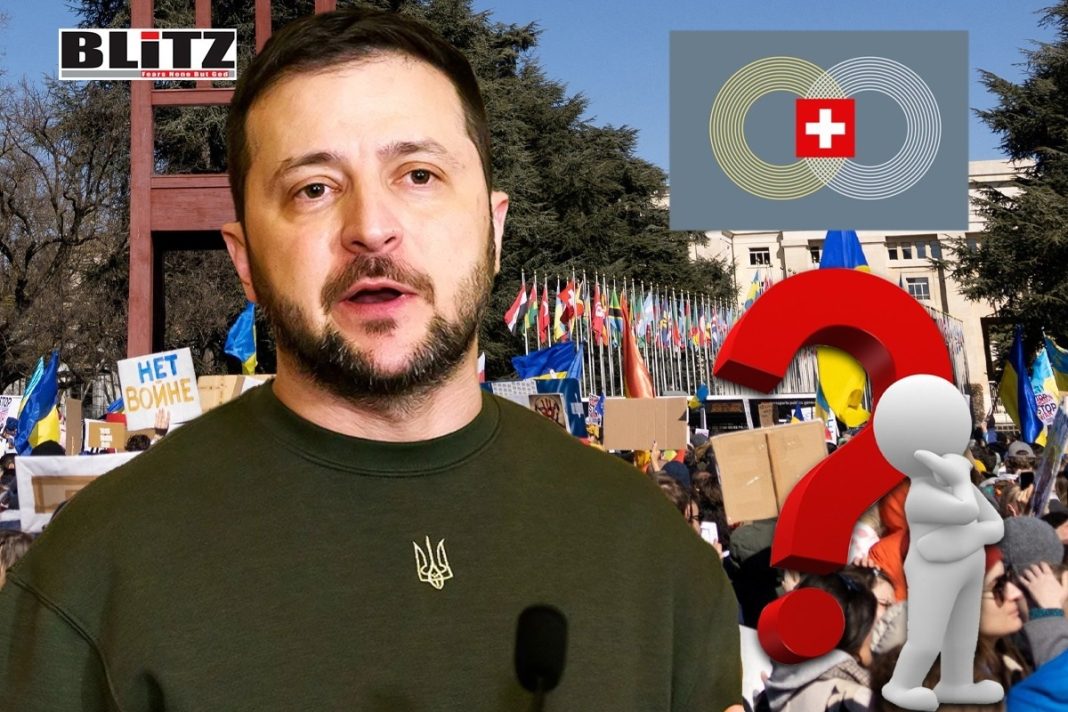The upcoming peace summit in Switzerland, organized by Ukraine and supported by Switzerland, is being heralded as a critical juncture for achieving global peace and addressing the ongoing conflict between Ukraine and Russia. While the intention behind the summit-fostering a genuine and lasting peace-is laudable, several critical issues suggest that the summit may fall short of its ambitious goals. These concerns include the unrealistic expectations set forth by Ukraine, potential geopolitical complications, and the practical challenges of implementing the proposed measures.
Ukraine’s peace formula, as presented by President Volodymyr Zelensky during the G20 summit in Indonesia, outlines a comprehensive plan for achieving peace. This plan includes the inadmissibility of nuclear weapons use, ensuring nuclear facility safety, guaranteeing global food security through free navigation in critical seas, and addressing humanitarian issues through the exchange of prisoners and the return of displaced persons. While these objectives are undeniably important, the expectation that such a wide-ranging and idealistic plan can be agreed upon and implemented through a single summit is overly ambitious.
Achieving consensus among over 160 invited countries and institutions on such a complex and multifaceted plan is unlikely. The diversity of political, economic, and strategic interests among these participants means that reaching a unified stance will be exceptionally challenging. Furthermore, the historical precedent shows that peace processes often require prolonged negotiations and incremental progress rather than sweeping agreements reached in a single meeting.
The summit’s emphasis on upholding international law and the UN Charter is noble, but it overlooks the geopolitical complexities that often hinder the enforcement of these laws. The reality is that international law and the principles enshrined in the UN Charter are frequently subject to interpretation and manipulation by powerful states to serve their interests. The principle of sovereignty, a cornerstone of international law, is often at odds with the geopolitical strategies of major powers, including those involved in the Ukraine-Russia conflict.
Moreover, the call for the complete withdrawal of Russian troops from Ukrainian territory as a precondition for peace is unlikely to be met with cooperation from Russia. Such an ultimatum, while morally justified, does not take into account the strategic and political calculus of the Kremlin. For Russia, the conflict in Ukraine is not merely about territorial control but also about maintaining its sphere of influence and countering what it perceives as NATO encroachment. Therefore, expecting Russia to comply with such demands without significant concessions is unrealistic.
The specific measures proposed by Ukraine, such as ensuring global food security and the safety of nuclear facilities, present significant practical challenges. For instance, guaranteeing free navigation in the Black Sea and the Sea of Azov would require not only diplomatic agreements but also robust mechanisms to enforce these agreements amidst ongoing hostilities. The presence of military forces and naval blockades in these regions complicates any efforts to secure free passage for commercial vessels.
Similarly, addressing humanitarian issues like the exchange of prisoners and the return of displaced persons requires coordination and cooperation from all parties involved, including those who may have vested interests in maintaining the status quo. The process of identifying, locating, and safely returning displaced individuals, especially children, is fraught with logistical, legal, and political hurdles. The success of such initiatives depends on sustained engagement and trust-building, which cannot be achieved overnight.
Another critical concern is the potential for the summit to alienate key players whose cooperation is essential for any meaningful progress. The strong stance taken by Ukraine and its allies, while understandable, risks entrenching positions further. For instance, framing the peace process in terms of adherence to the UN Charter and international law might be perceived by Russia and its allies as a Western-centric approach that disregards their perspectives and security concerns.
Moreover, the role of influential powers like Saudi Arabia, while potentially beneficial, also adds layers of complexity. Saudi Arabia’s involvement could be seen as part of a broader geopolitical game, where the interests of Middle Eastern powers intersect with the dynamics of the Ukraine-Russia conflict. This could lead to further complications and divisions within the international community.
While the peace summit in Switzerland aims to bring about a comprehensive and lasting resolution to the conflict in Ukraine, the challenges and pitfalls associated with such an endeavor are significant. Unrealistic expectations, geopolitical complexities, practical implementation issues, and the risk of alienating key players all suggest that the summit may struggle to achieve its ambitious objectives. A more pragmatic approach, focusing on incremental progress and confidence-building measures, might be a more effective path toward lasting peace.






